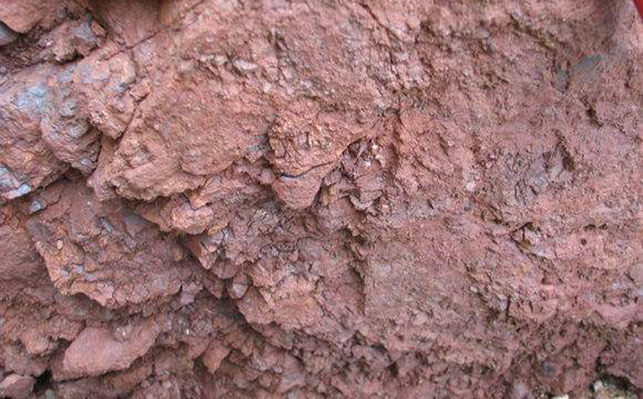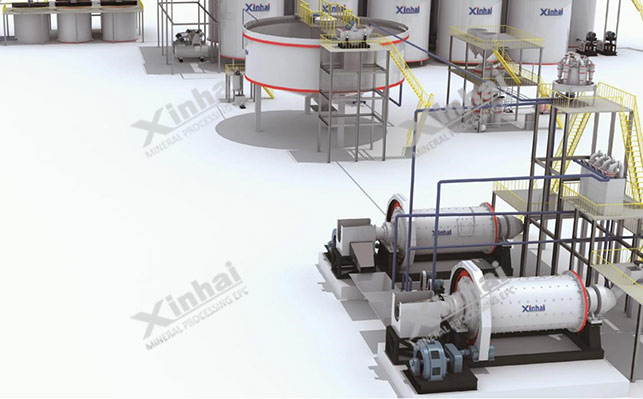
15311826613
Click to add WeChatThe formation of laterite nickel ore is mainly a water-containing oxide mineral formed due to climate changes (through rainforest, oxidation, etc.). According to the different compositions of nickel ore, it can be divided into limonite-type nickel ore and magnesium-nickel ore. Let’s take a look at the characteristics of these two types of laterite nickel ores.

(The picture comes from the Internet, if there is any infringement, please contact customer service)
Limonite-type laterite nickel:Limonite-type laterite nickel is generally located in the upper part of the deposit. Its main feature is that the content of nickel, silicon and magnesium is low. , and the content of iron and cobalt is relatively high. This type of laterite nickel is often processed by hydrosmelting process in mineral processing.
Silconite type laterite nickel: Silconite is also called eluvial ore, which is mostly located in the lower part of the deposit. It is characterized by high contents of nickel, silicon and magnesium. The content of iron and cobalt is relatively low. This type of laterite nickel ore is often processed by pyrometallurgy.
The composition and extraction process of laterite nickel ore of different mineral types are shown in the table below:
Although there are several different types of laterite nickel, generally speaking, they all have the same characteristics, as follows:
1. Lower nickel grade: Generally, the mineral composition ratio of nickel sulfide minerals is much more complex, and all types of laterite are ores formed after differentiation. They contain a large amount of ultrafine materials and a large amount of water (both surface water and crystallization water), and there will be Mixed with varying amounts of hard rock. Depending on the mineral composition of the rock, it can be discarded or processed, but in the process, screening, crushing, scrubbing and other work are required.
2. The mineral composition content fluctuates greatly: For laterite nickel minerals, not only the content of valuable elements of nickel and cobalt changes greatly, but also the gangue minerals (such as manganese, iron, magnesium, etc.) ), the composition of red soil also changes greatly. Even in the same mineral deposit, the composition of laterite will change with the depth of the mineral deposit.
3. Gravel content and particle size vary greatly: In laterite minerals, although the particle size of the gravel appears limonite as a whole, it contains less gravel and has a smaller particle size. However, the eluvium layer contains more gravel and has larger particle size. Generally, the gravel particle size ranges from 3mm to 2000mm.
4. Large changes in moisture content: Laterite nickel is generally divided into two types: wet type and dry type. Depending on its type, the moisture content will change greatly, even if it is the same In mineral deposits, the moisture content of ores varies greatly between the dry season and the rainy season.

The above is an introduction to the different types of laterite nickel minerals and their same characteristics. No matter what kind of nickel mineral, if you want to use it in industry Applications require the purification of nickel through mining, mineral processing and smelting processes. In terms of mineral processing, Xinhai Mining can provide mineral processing tests. Through test analysis, it can design suitable nickel ore processing technology plans and mineral processing plants for users. Construction plan, complete set of nickel ore dressing equipment and installation and commissioning of mineral processing plant equipment. If you have any needs, welcome to consult, service hotline: 15311826613!